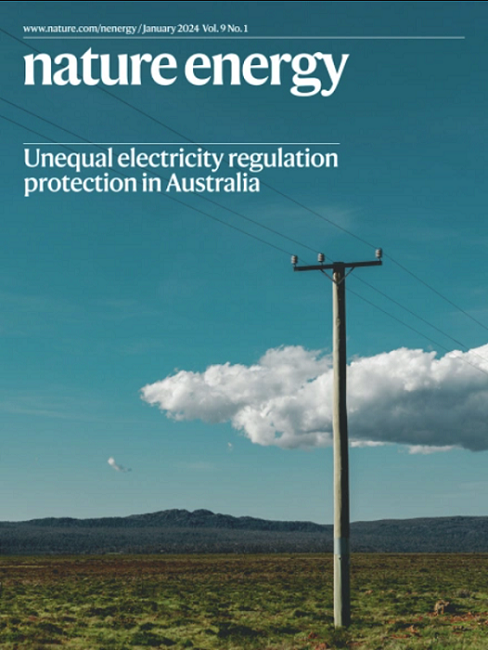可再生能源对电力系统天气脆弱性的影响
IF 49.7
1区 材料科学
Q1 ENERGY & FUELS
引用次数: 0
摘要
风能和太阳能等依赖天气的可再生能源(WD-RES)的高渗透率引发了人们对异常天气条件下电力系统安全性的担忧。可再生能源在全球停电事件中的作用已被讨论过,但仍存在争议。在本研究中,我们发现尽管可再生能源不可调度且对天气敏感,但在高渗透率的可再生能源电网中,停电强度和极端天气脆弱性得到了缓解。在高渗透率 WD-RES 电力系统中,WD-RES 对停电的因果效应普遍降低,WD-RES 并不是极端天气条件下发生停电的主要原因。我们的研究成果有助于关于可再生能源整合和电力系统安全的讨论,为电力系统弹性研究提供了指导,并为未来雄心勃勃的高渗透率可再生能源目标提供了参考。本文章由计算机程序翻译,如有差异,请以英文原文为准。


Impacts of renewable energy resources on the weather vulnerability of power systems
The high penetration of weather-dependent renewable energy sources (WD-RESs) such as wind and solar has raised concerns about the security of electric power systems during abnormal weather conditions. The role of RESs has been discussed in worldwide blackout events, yet remains controversial. In this study, we find that although WD-RESs are non-dispatchable and weather sensitive, blackout intensities and extreme weather vulnerability are mitigated in high-penetration WD-RES grids. The causal effects of WD-RESs on blackouts generally decrease in high-penetration WD-RES power systems, and WD-RESs are not mainly responsible for the occurrence of blackouts in extreme weather conditions. The results of our research contribute to the debate on RES integration and power system security, offer a guide for the study of power system resilience and provide a reference for the ambitious high-penetration RES goals of the future. Renewable energy sources (RESs) are weather sensitive, raising questions about the vulnerability of high-penetration weather-dependent RES grids during extreme weather events. Here the authors find that blackout intensities and extreme weather vulnerability are mitigated in high-penetration weather-dependent RES grids.
求助全文
通过发布文献求助,成功后即可免费获取论文全文。
去求助
来源期刊

Nature Energy
Energy-Energy Engineering and Power Technology
CiteScore
75.10
自引率
1.10%
发文量
193
期刊介绍:
Nature Energy is a monthly, online-only journal committed to showcasing the most impactful research on energy, covering everything from its generation and distribution to the societal implications of energy technologies and policies.
With a focus on exploring all facets of the ongoing energy discourse, Nature Energy delves into topics such as energy generation, storage, distribution, management, and the societal impacts of energy technologies and policies. Emphasizing studies that push the boundaries of knowledge and contribute to the development of next-generation solutions, the journal serves as a platform for the exchange of ideas among stakeholders at the forefront of the energy sector.
Maintaining the hallmark standards of the Nature brand, Nature Energy boasts a dedicated team of professional editors, a rigorous peer-review process, meticulous copy-editing and production, rapid publication times, and editorial independence.
In addition to original research articles, Nature Energy also publishes a range of content types, including Comments, Perspectives, Reviews, News & Views, Features, and Correspondence, covering a diverse array of disciplines relevant to the field of energy.
 求助内容:
求助内容: 应助结果提醒方式:
应助结果提醒方式:


